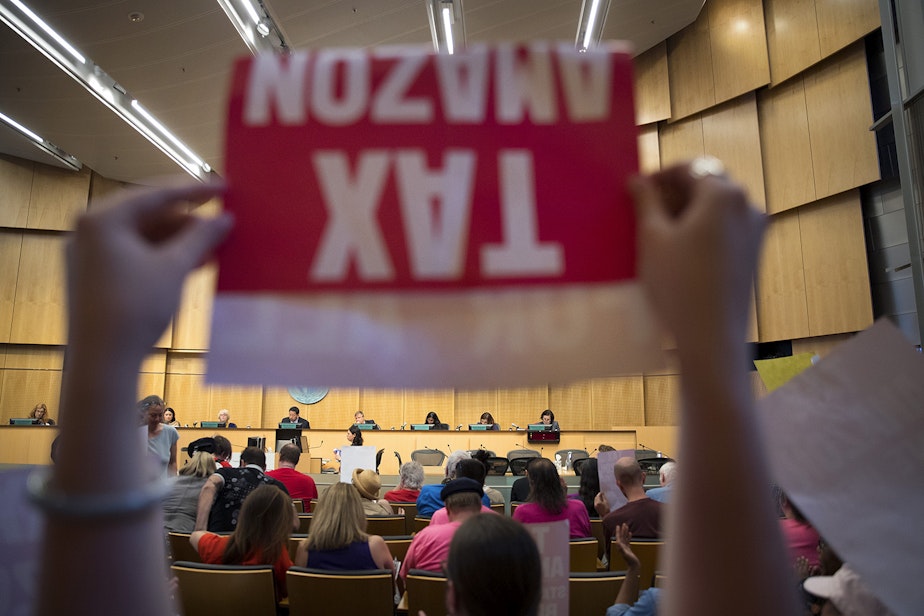Who gets credit for Seattle's new business tax?

So who (or what) got the new tax on business passed by the Seattle City Council?
Advocates argued the more than $200 million a year being generated is needed to combat the fallout from the Covid-19 crisis, build housing and fund community services. The tax has a veto-proof council majority, so Mayor Jenny Durkan may not be able to stop it.
In a conversation with KUOW’s Angela King, Q13 News’ C.R. Douglas, and host of Civic Cocktail on the Seattle Channel Joni Balter, disagreed who really got this passed.
C.R. Douglas: Fundamentally, it was [Councilmember] Kshama Sawant who laid the groundwork for this. Without her, I highly doubt it would have happened. She has been the singular nonstop advocate of a business tax for years. More than anyone she made this the issue in her reelection campaign last fall -- the Amazon tax. It was this epic David and Goliath battle with one of the largest companies on the planet. And Sawant won, that was a key moment. It really created the opening for her colleagues and others to jump on board.
Joni Balter: Not so fast, C.R. It was Councilmember Teresa Mosqueda who pushed this over the finish line. Most council members have been for some sort of tax since the 2019 election created this new council. Even Mayor Durkan you'll remember touted a countywide version of a tax but it didn't pass the Legislature. So timing: Covid and police protests helped make this happen, and Mosqueda seized the moment. The city didn't really need the money the first time this tax was voted on in 2018. They were really flush at that time. At least now the city has more pressing budget needs though I'm not convinced this is good policy for Seattle.
Angela King: So Joni, how do you think businesses are going to respond?
Sponsored
Balter: Well, let's start with Amazon. I think you will see more of the high-paid employees work outside the cities and it's so much easier now because remote work is more prevalent with Covid. Sure Amazon's going to pay some taxes on higher salaries, but you can bet many employees will move, you know, to Bellevue, Virginia, New York. The tax also makes other companies that are eyeing Seattle wonder should you really invest here? The countywide idea would have removed the incentive for businesses to move to the Eastside.
Douglas: I have a different take than Joni on this. I don't think Amazon is gonna abandon Seattle in any large degree. The benefits of an urban campus which employees really like don't evaporate overnight. I suspect that rather than avoiding the tax, the bigger effects will be businesses passing on the tax. In this case to employees I mean, you can easily see a company like Amazon say trimming back a bit on the raises they would otherwise give or for new hires dialing back a little bit in the offers they make. I mean, basically playing around with the numbers like that so that this new tax doesn't actually fully hit a company's bottom line.
Balter: I would not be surprised if you see a lawsuit by the business community or even a veto by the mayor. You know, just a veto standing on the principle of this thing that this tax is not good for the city, especially our now-struggling downtown.




